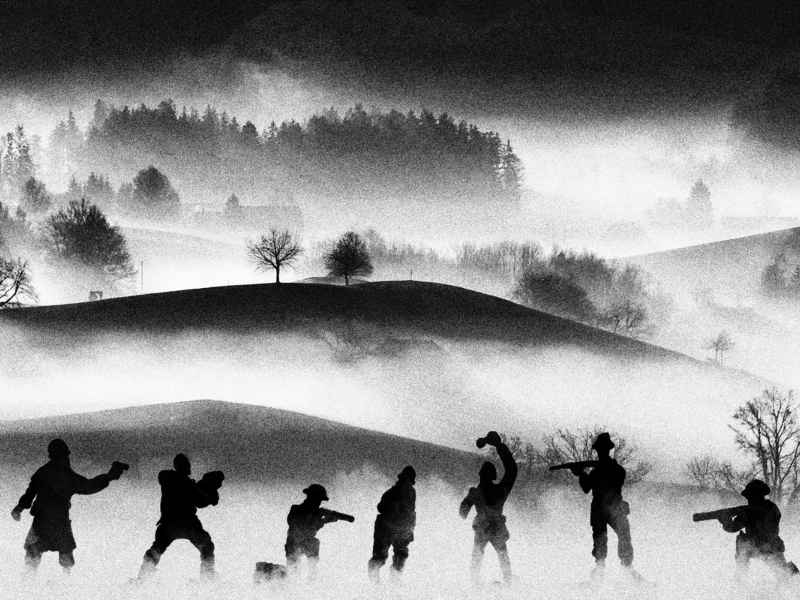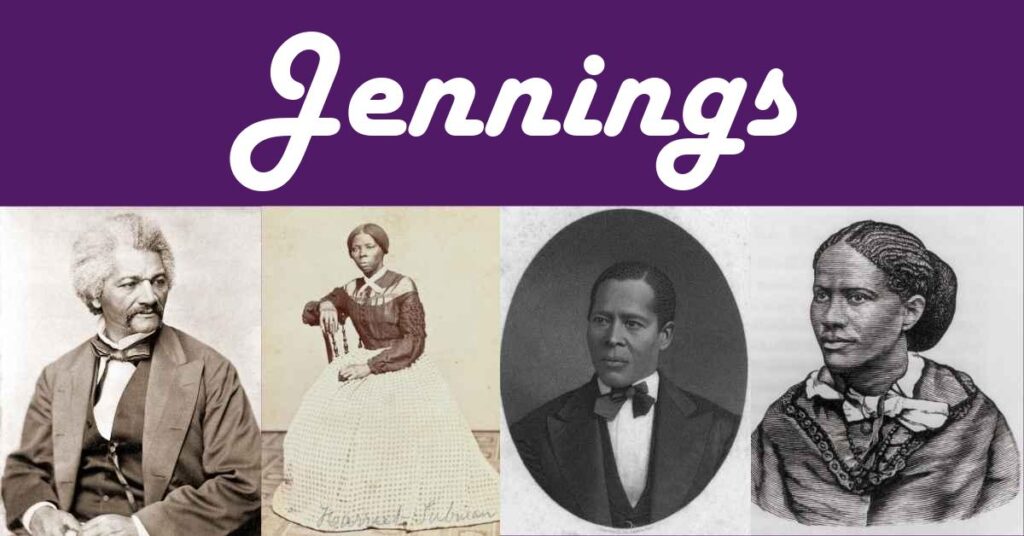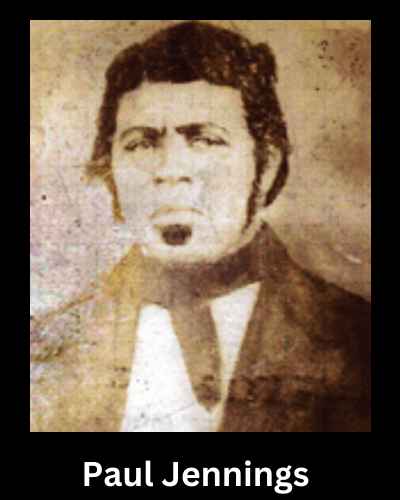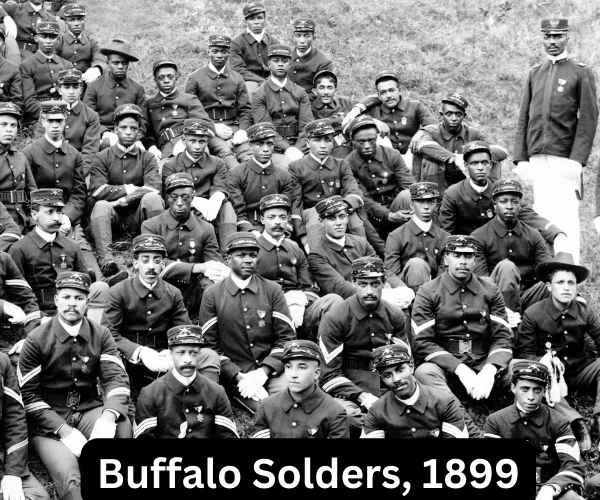The 2010 U.S. Census recorded 20,684 black Americans with Jennings as their last name. That represented 23% of the total of 89,700 entries.
This article tracks their numbers in the census since the Civil War. We also look at historic African American people named Jennings.
We end with a review of early records of black military service in the United States.
After The Civil War

The 1870 census was the first survey after the Civil War and the Emancipation Proclamation. In 1850 and 1860, only free African Americans were recorded in the census. The many enslaved were omitted.
From 1870 onward, all black Americans were included.
2,276 people named Jennings were recorded in the 1870 census as black and 331 as mixed.
There was a total of 17,249 people with the name.
Jennings In The 1900 And 1940 Census
The mixed category was dropped from the census in 1900, so we just need to look at the black numbers this time.
The 1900 census recorded 4,858 people with the last name Jennings as black within a total of 29,275 that year.
By the way, the mixed category returned in the 1910 and 1920 censuses. It was dropped again in 1930, but replaced with extra categories for colored and non-white in a way that seems confusing now.
This changed again in 1940 and we can simply focus on one black category.
The 1940 census recorded 7,181 people named Jennings as black within a total of 47,666.
Historic Black Figures With The Jennings Surname

Here are some notable African Americans in history with Jennings as their last name.
Thomas Jennings
- Born: 1791
- From: New York City
- Died: 1856
Thomas Jennings was a tailor who established a successful dry cleaning business and clothing store in New York. He researched ways to protect fabrics while they were being dry-cleaned and developed a technique known as dry-scouring.
When he obtained a patent for this process in 1821, he was the first black American inventor to hold one. He amassed considerable wealth from his invention and businesses. It allowed him to purchase his wife’s freedom.
Jennings plowed much of his wealth into abolitionist causes. When his daughter, Elizabeth Jennings, was violently ejected from a streetcar in 1854, the father and daughter campaigned vigorously against segregation in public transport with the support of Frederick Douglass.
Thomas took a legal case on his daughter’s behalf which they won in 1855. This was an important landmark in the long path to desegregation.
Paul Jennings
- Born: 1799
- From: Orange County, Virginia
- Died: 1874

Paul Jennings was born enslaved on the Madison family plantation. James Madison was elected President when he was ten, and the boy went to the White House as a house servant.
During the Burning of Washington in 1815, Jennings and other slaves carried portraits and silver out of the White House as the British approached.
He was eighteen at the end of Madison’s time in office and served as his valet until Madison died. Madison’s widow, Dolley, hired Paul out to President Polk before selling him in 1846. Senator Daniel Webster purchased his freedom.
Jennings could now join the free black community in Washington. He was involved in the abolitionist plan in 1848 to free seventy-seven slaves in D.C. by transport on a schooner. Bad weather stymied the escape.
Jennings published his memories in 1865, “A Colored Man’s Reminiscences of James Madison”.
Other Slave Narratives
The account of Jennings’ life is considered to be part of the genre of slave narratives. Here are some more:
Jennings In Black Military Records
Military records are a rich resource of information for family history research. Here are examples of the Jennings surname from military service.
Buffalo Soldiers

Five regiments for black soldiers were formed during the Civil War. They were known as the Buffalo Soldiers.
Their records are part of the national archive of military monthly returns. The information includes the year and place of birth, where they enlisted, their occupation, and their height.
One of the earliest military entries for Jennings was in August 1867. Oliver Jennings was a Recruit in the U.S. Tenth Cavalry. He was stationed in August 1867 at Fort Riley (Kansas), Memphis (Tennessee).
One of the later entries was in April 1911. Henry Jennings was a Private in the U.S. Ninth Cavalry.
If you are researching military ancestors, there is a free index of these records on Ancestry.com and FamilySearch.org.
You have to create an account on either website, but you do not need to pay for the Buffalo Soldiers archive.
Black Civil War Sailors
The National Parks Service has a free archive of African American sailors during the Civil War.
The information includes their age, height, rank, occupation, and where and when they enlisted. It also includes every ship that they served on.
You can search the database on the National Parks website.
George Jennings
One of the earliest entries for Jennings was for George Jennings from Alexandria, Virginia. He enlisted in December 24 1861 at Boston when he was aged 31.
His occupation before enlisting was as a Barber.
James Jennings
One of the later entries was for a sailor who enlisted at Baltimore in February 10 1864. James was aged 22 and was from Anne Arundel County, Maryland.
He was assigned to the ship Commander Perry on March 1864.
His occupation before enlisting was as a Waiter. His naval rank was Landsman.
“Landsman” was the lowest rank at the time and was given to recruits with little sea experience.